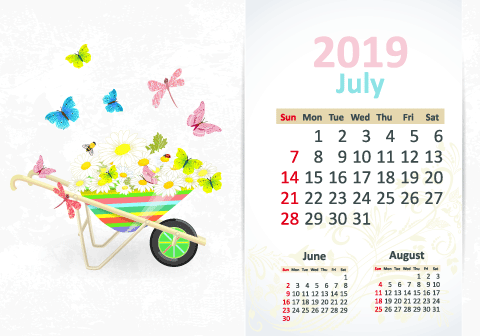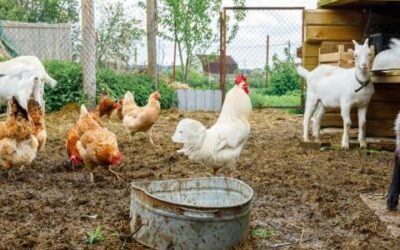Get Gardening Maintenance on the Calendar
 The fireworks have felled their giant canopies and silenced, and no matter your planting zone, we are all deep into the sweet pulpy center of summer. We see you – gardening gloves off, kicking back with an everything-burger, enjoying the rewards of your spring toil. Don’t get too comfortable in that antigravity lounge chair – there’s no resting in gardening! Go ahead and relish in those tiny tomatoes you nurtured from seed and those startlingly blue delphiniums aspiring to the sky – but keep a side-eye on the calendar and start thinking like a like a maintenance company when it comes to gardening chores to keep your piece of earth solidly in the green until the season’s bittersweet end.
The fireworks have felled their giant canopies and silenced, and no matter your planting zone, we are all deep into the sweet pulpy center of summer. We see you – gardening gloves off, kicking back with an everything-burger, enjoying the rewards of your spring toil. Don’t get too comfortable in that antigravity lounge chair – there’s no resting in gardening! Go ahead and relish in those tiny tomatoes you nurtured from seed and those startlingly blue delphiniums aspiring to the sky – but keep a side-eye on the calendar and start thinking like a like a maintenance company when it comes to gardening chores to keep your piece of earth solidly in the green until the season’s bittersweet end.
Engaging in mulch-related maintenance is simply a gardening fundamental, and your industriousness now will make the difference between presiding over a tired terrain or an enviable Eden come late summer. Mid-July is an ideal time to top off your garden. Mulch has such an abundance of positive attributes. It does so much heavy lifting all while providing beauty, you’ll want it by your side all summer. Here’s why July is all about the mulch.
July Mulch Maintenance for a Glorious Garden
Manage H2O. The height of the summer can mean intense sun and heat. Preserving moisture is critical. If that buttery ball is blistering, water vigorously. If your area is being pummeled by rain (thanks Mother Nature), adding mulch will allow the surfeit of water to seep into the roots gradually, keeping plants intolerant to wet feet happy, even if you and your one vacation week are not.
Edge beds & head off weeds at the pass. Edging can be done throughout the summer—weekly, ideally, keeping tidy borders and preventing grass and weeds from infiltrating your picture-perfect rows. July is the ideal time to do some front work to prevent weeds from seeding and spreading by amending the depth of existing mulch (2 – 3 inches is preferable). Work done now will mean fewer weeds next year, and that means more time floating in the pool in that inflatable dragon.
Use this helpful guide for applying mulch for landscape maintenance based on your objective.
Applications

Read More about Mulch Application.
Declare your natural beauty. Got natural areas in the garden that have no plantings? They’ll benefit from a fresh layer of mulch now. It promotes a healthy landscape and provides visual appeal. One magnificent benefit of mulch is its ability to take the curse off dried earth in non-blooming spaces, especially at the height of summer when soil is dry and crusty.
Extend flowering. OK, it doesn’t require mulch, but it bears repeating: if you are mid-summer mulching, you should also be also be deadheading to promote more color and keep your garden from looking tired in the third act. Mid-summer is prime time for deadheading spring blooms on perennials and annuals. Do so ruthlessly. Some, such as asters, dahlias, cosmos, and zinnias, benefit from pinching dead blooms, while others, like roses and bellflowers, thrive from cutting the dead stem down to the stalk (or in the case of roses, down to the first five-leaf stem).
Keep helpers happy. Remember that mulch keeps the ground habitable for beneficial creatures like earth worms while keeping unwelcome pests under control. July is high time to clean out old growth, examine pest-ridden leaves and ask your local garden center for the right remedy for dying or latticed leaves (bring along a snap of the plant when you go). This will help you get ahead of pests and disease, keep bad things from spreading to neighboring plants, and keep the CEO of Your Garden, Inc. happier.
Spread for the veg! If your plot of land is teeming with edibles for a future salad, get mulching – lift growing fruits and vegetables carefully while mulching around the plant. Some gardeners choose hay for this task since it keeps veggies clean and dry. Other wisely-chosen mulches do this job as well: Mainely Mulch/Premium Ground Cover boasts segments that interlock, naturally tackifying, and holding it in place keeping produce immaculate as it matures.
When you’re done with your mid-summer mulching, deadheading and fertilizing, pop a sprig of borage in your seltzer and admire your work – briefly! – and start filling in the calendar for August’s upcoming duties. Some helpful gardening calendars will guide you along the way. Here’s one from The Farmer’s Almanac that provides tasks targeted to your zone.




